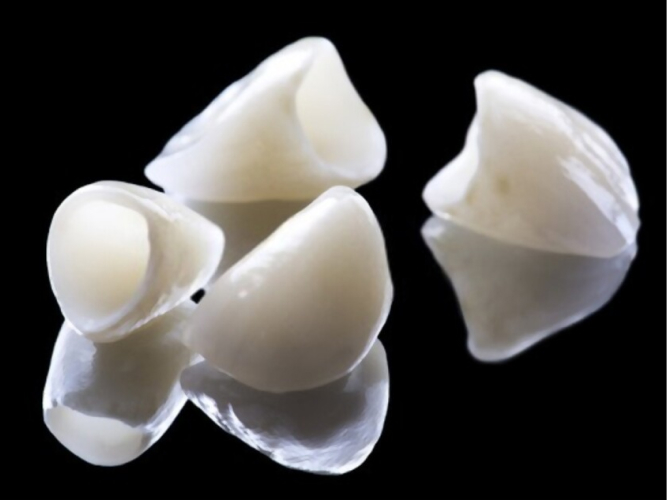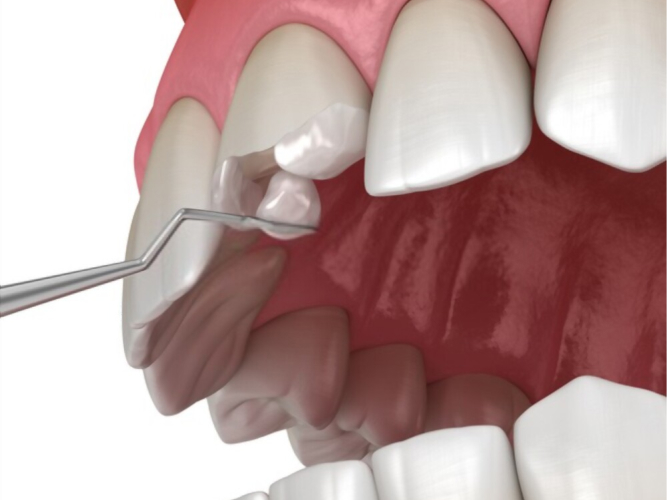Aesthetic Dentistry
Teeth Whitening
Home And Office Whitening Systems
What is home-type whitening?
It is a whitening method that patients can do their own. Firstly we take our patient's lower and upper jaw measurements and we prepare a thin soft plaque that can be placed on the teeth. You need to use this plaque for 8 hours a day. Our advice is to use the plaque while sleeping at night. We use
What is office-type whitening?
Office type whitening procedure is carried out in our clinic with our dentists. First, your teeth are cleaned and prepared for the whitening process by our dentists. Then we apply the whitening gel to the teeth and the whitening process is completed in 2 sessions of 15 minutes.
Can crowns and veneers be whitened with laser whitening?
Crowns and veneers can not be whitened. If your crowns and veneers are discoloured you need to renew them or you can remove stains with polish.
Will my teeth be completely white, will all teeth be white?
The structure and anatomy of the teeth vary from person to person. How much your teeth will whiten is related to the factor that causes the color change. Brown and yellow teeth give better results. Teeth with gray tones may not give the expected whiteness.


How Long Does It Last?
Teeth turn yellow and stained by the food and drink we consume. The bleaching effect is won’t last forever. This time varies from person to person. The effect of whitening can last 6 months to 1 year, it depends on eating, drinking, brushing, smoking habits. After bleaching repeating the process within 6 months, makes the whitening effect more permanent.
How should I take care of my teeth to keep my teeth whiter for longer?
If you want your teeth whitening to last longer, brush your teeth twice a day, get a dental cleaning every 6 months. Only use toothpaste recommended by your dentist. Drink a lot of water
Why Do Dental Stains Occur?
There are many causes of tooth stains. The most common ones are coffee, tea, cola, cigarettes consumption of substances. Some antibiotics or excessive fluoride consumption during the formurtion of teeth can also cause coloring of teeth.
Are There Any Side-Effects?
There may be sensitivity after the whitening process. Sensitivity varies from person to person. Sometimes the sensitivity may take a long time, and sometimes there may be no sensitivity at all.
No need to worry, this is a normal and expected side effect and is completely temporary. Teeth sensitivity is usually expected to pass within 24 hours after the whitening process is completed.
Who Can Have Teeth Whitening?
It can be applied to anyone who has completed the age of 18 and has good oral and dental health.
Good oral health is important to avoid sensitivity problems. If there is any problem, it would be right to treat the teeth first.
We do not recommend laser whitening procedure for pregnant and lactating mothers.
Request an appointment
At Dentince Dental Clinic we use Fläsh Laser whitening system which is high-quality German product.

If you are ready to start the journey towards a life-changing smile, contact us to schedule a free consultation today!




